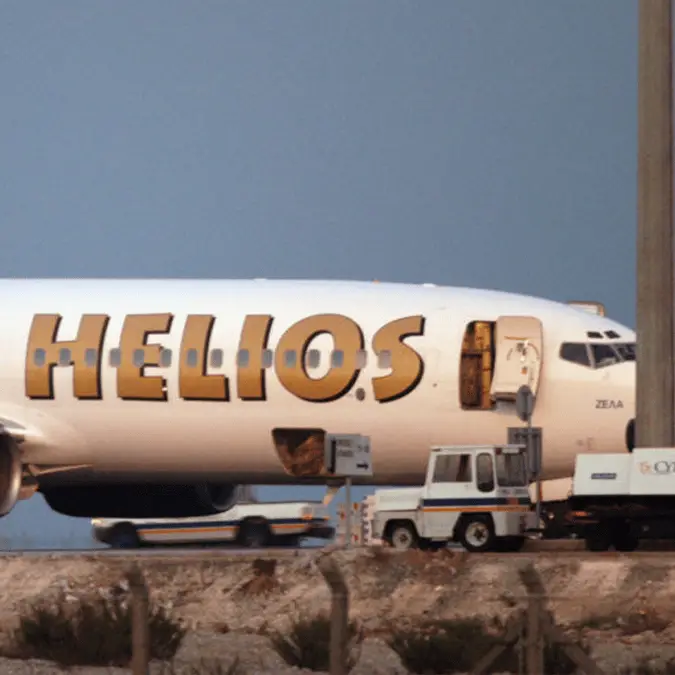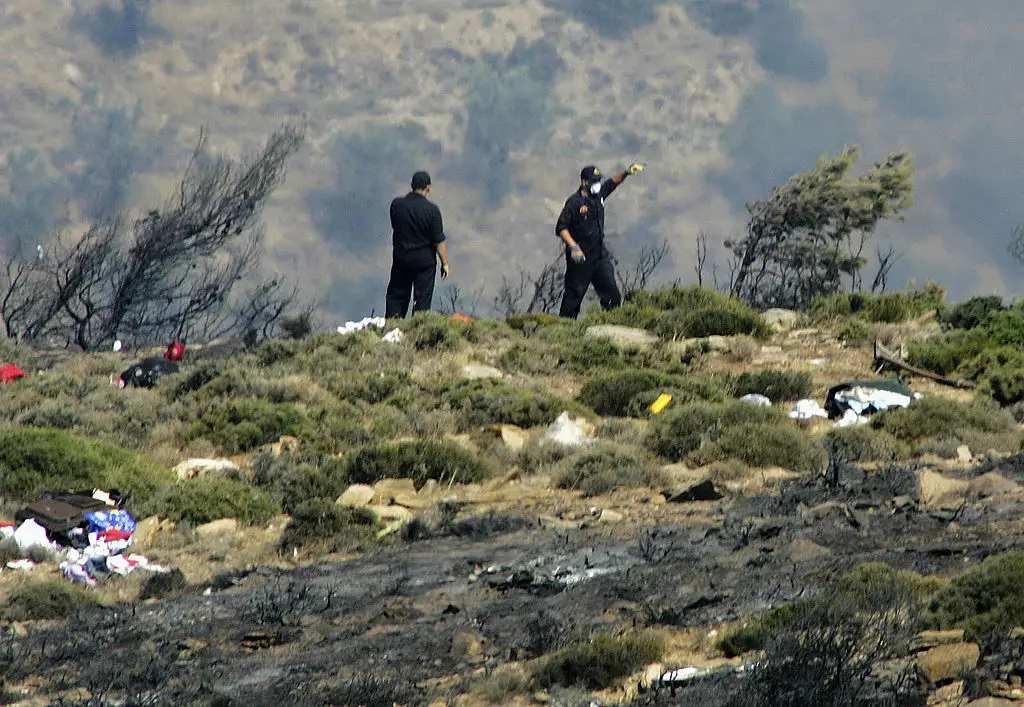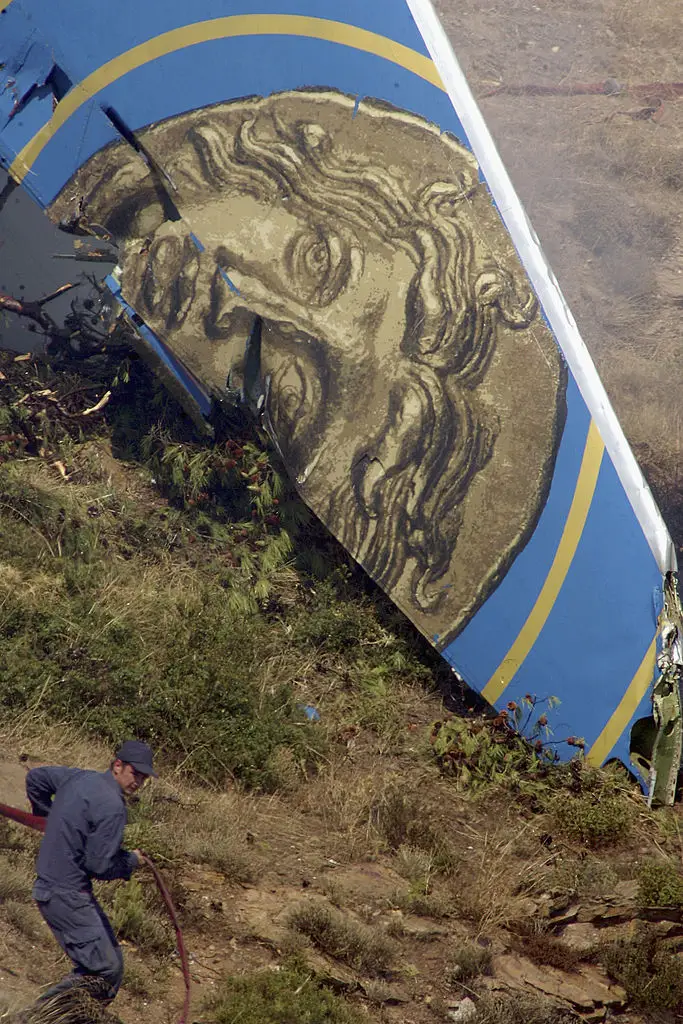
Twenty years ago, on 14 August 2005, the Helios Airways Flight 522 departed from Larnaca, on the southwest coast of Cyprus, at 9.07am and was scheduled to reach Athens after one hour and 45 minutes.
A series of human errors led to the plane never making it to its destination, after it ran out of fuel, thus killing all 121 people on board.
To this day one of the 'freakiest' tragedies of the skies, the plane earned its nickname of 'Greek Ghost Flight' when it remained flying in the air before the impact in the mountains, unavoidable even when flight attendant Andreas Prodromou tried to fly the Boeing when the pilots had passed out.
But what happened exactly?
Advert

All seemed normal at takeoff, but minutes into the flight a takeoff configuration alarm, which normally only sounds on the ground, blared in the cockpit.
German captain Hans-Jürgen Merten and his Cypriot copilot, Pampos Charalambous, radioed the Helios Operations Centre at Larnaca Airport about the takeoff configuration alarm. As they were speaking to British-born Helios engineer Alan Irwin, the Master Caution alarm, which means the system is overheating, sounded.
At the time, the crew didn't think they were having cabin pressure problems, so they focused to fix the plane's cooling system. This prompted the captain to get up from his seat to look for the plane’s cooling circuit breakers so to fix the issue of overheating, which he wrongly believed was the issue.
On the ground, Irwin was recorded asking the captain to confirm that the pressurisation panel was selected to auto. The captain did not reply.
It was believed that the captain could have started having symptoms of hypoxia (a state of lack of oxygen to the tissues) due to the high cabin pressure altitude, which includes increased rate and depth of breathing, tachycardia, restlessness and euphoria, as well as mental confusion and poor judgement.
Within minutes of the flight's call to Irwin, radio contact with the pilots was lost.
Worried that the plane had been hijacked, the Greek Air Force deployed fighter jets to investigate the Helios plane.
The jets spotted the co-pilot slumped in his seat and no sign of the captain, while most passengers appeared unconscious.
One figure, however, walked into the cockpit. It was Prodromou, who presumably survived the hypoxia long enough to attempt to fly the plane thanks to a portable oxygen bottle.

The flight attendant had his commercial pilot's license and was hoping to becoming a captain for Helios, but unfortunately didn't manage to land the plane as, shortly after he entered the cockpit, the left engine had run out of fuel.
When the cockpit voice recording was recovered, it could play Prodromou breathlessly repeating 'Mayday', though his call for help was never heard by anyone on the ground, probably because the radio was still tuned to Larnaca.
Aviation expert David Lermount branded the Helios 522 disaster one of the 'most freakiest' air accidents in history.
